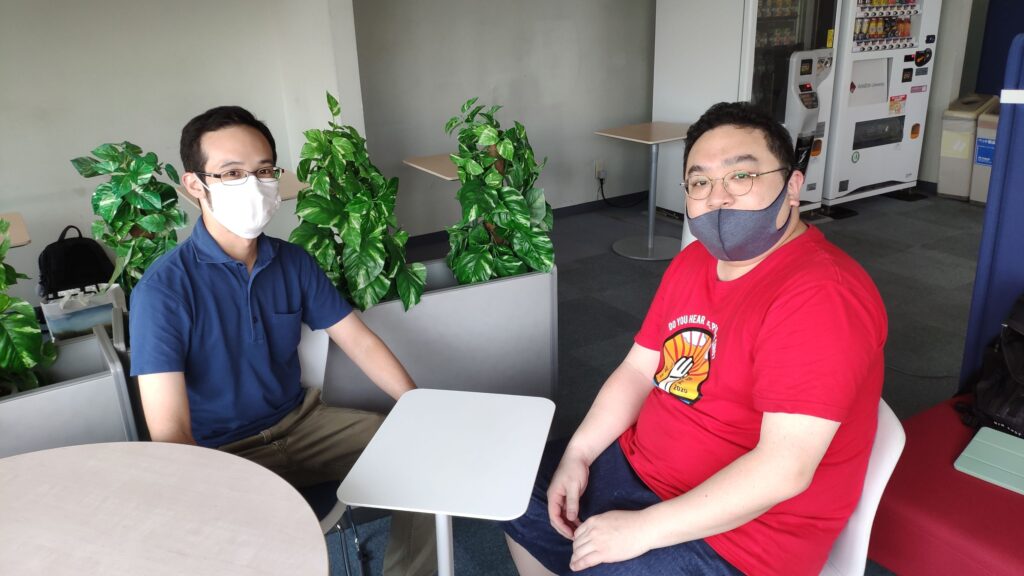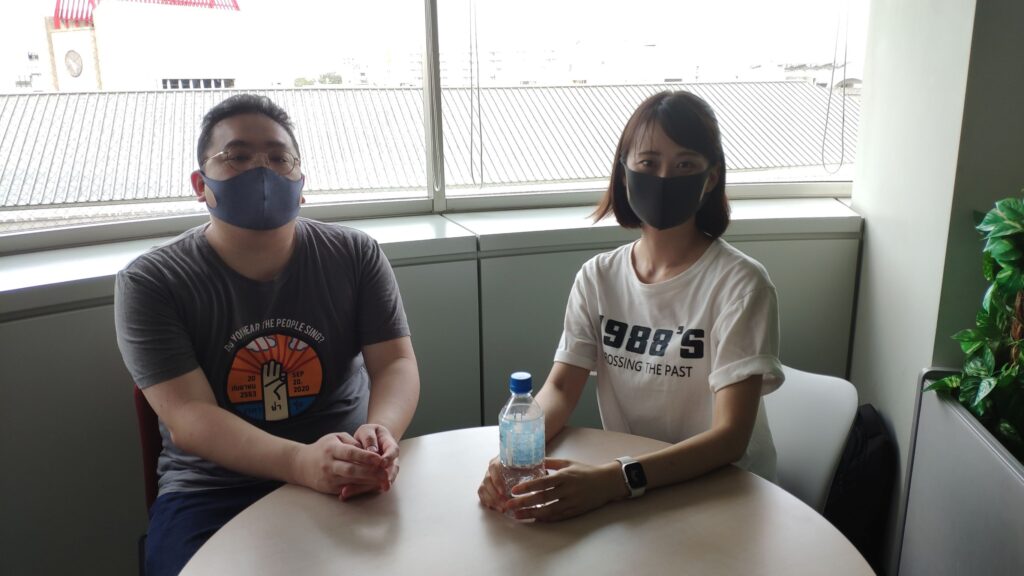分断時代の南ベトナムにおける仏教徒運動とその思想
研究全体の概要 1963年5月釈迦誕生祭にて国際仏教旗の掲揚が禁じられたことを背景に仏教徒は宗教弾圧を訴えながら宗教平等を求める一連の社会運動を起こした。仏教徒はベトナム共和国(南ベトナム)の都市で反政府運動を展開し、自分の命すら落とす焚…

This research studies the notion and perception of world citizen which has been the popular claim used among the young generation participants of the 2020 People Demonstration in Thailand. This is a continuation from the field work and interviews during the time I was in Thailand (July – September 2020) and comparing the 2 groups of people who share the same political goal and approximately in the same age group (born in 2000s onward) but geographically live apart. This is in order to see whether the influence of the ‘geographical boundary’ has radically decreased due to the emergence of digital platform and its accessibility as the participants in Thailand had claimed or not. During this field trip to conduct the interviews with the participants for the demonstration aligned themselves with the ones in Thailand both the young generation and the older generation. The result from the study clearly shows that there is a disparity that split apart the perception of the two generations. The young generation had confirmed the claim offered by the young participants in Thailand, while the older generation – although ranked the effect of the digital technology in high regard – tends to put weight more on the politico-economic crisis and the incapability of the Prayuth government to handle the situation as the main driving force in connecting and pushing people to get on the street. This difference in perception is likely to stem from the dissimilar interpretation the two generations have on what they call reality as well since the foundation of reality seen by the young generation (or digital native) is not the same as the one seen by the old generations (digital immigrant and digital alien).
The qualitative interviews with Thai students who took part in the demonstration against Thai military-rooted government in Tokyo as a coalition of the huge protest in Thailand (particularly in late 2020 – early 2021). This research severely related to the final part of my doctoral thesis which tries to explain how the new generation of Thai citizens could escape from the influence of the dominating royal narrative. I did have some interviews with the student protestors in Thailand, therefore, I would like to have the similar interviews with the Thai students outside of Thailand but fighting for the same goal, to see and compare whether their point of departure in breaking free from the narrative similar to the ones in Thailand or not. And also, to examine the claim of seeing themselves as ‘global citizenship’ rather than a ‘singular national citizenship’ (in this case Thailand) that has been widely spread among the protestors that even resulted in the global digital phenomenon like #MilkTeaAlliance.

First and foremost, as a part of my Ph.D. thesis and the continuation of the field work from the time in Thailand, the research this time was fruitful as it confirmed the claim offered by the interviewed participants in Thailand which, in turn, strengthened my Ph.D. thesis’ argument. The claim that underlines the significance of the digital platform which most of the participated young generation has been grown up with has also disaffected the influence of ‘geographical boundary’ a lot, including the nation’s border which plays an important role in the concept of modern nationalism; granting them a more liberated view regarding the perception of ‘self in relation to the space and stories (history) that representing them’. As the unbounded ones, the way the locate themselves is much boarder than people of the previous generation; hence, the popular emergence of the world citizen notion and the way #MilkTeaAlliance was spread, transforming the point of similarity reference from geographically confined territory and history to the political suppression and ideological goal. Though this sort of transformation could be argued to establish itself long before the rise of digital technology since it is the very essence of (progressive) liberalism, but this study would argue that with the rise of the new technology it is the first time in history, particularly for the third world countries like Thailand, that this established notion could be popularized in reality and homogenously practiced literally without boundary. The similar answers from people with the same goal but live in a geographically different locations, Bangkok and Tokyo. In short, the two generations see what is called ‘reality’ differently; geographically bounded and unbounded.
Second, the study has granted me the information that I did not place my concern on before as well and it could be considered as a bonus point. The differences are not only seen by the criteria of generation but also based on the time in which the participant is ‘politically engaged and enlightened’ (Taa Sawaang, in Thai). The participant from the relatively younger generation but engaged and enlightened in politics earlier (before 2020) and the relative older participant but engaged and enlightened in politics later (from 2020 onward) tends to see other factors that contributes to the declination of the royal’s narrative influence differently; apart from the digital factor. The former tends to see the end of King Bhumibol’s era as another main factor whilst the latter tends to see the enthronement of King Vajaralongkorn himself as the main problem. This means that the former group believes that whoever replaces the deceased King Bhumibol, regardless of their popularity, would lead to the ongoing royal declination as they see King Bhumibol as the main social barrier that prevented the royalty from criticism but the latter group specifically single out King Vajiralongkorn as the one responsible for this scenario, assuming that if others like Princess Sirindhon had taken the throne instead, then, they would never come to their current political realization.
Lastly, the former group in the previous point seem to see the impact of digital factor a little bit less than the late politically enlightened ones, while the latter group tends to see the significance of the digital factor slightly more than people of the same generation but had earlier political enlightenment.
As I am personally interested in the rising multidisciplinary school of Science and Technology Studies (STS), particularly on how the science and technology affect and transform the way the society behaves, I might take the knowledge gained from this research as the basis for my future STS research especially on Thai politics and the security studies at large.
Copyright © 附属次世代型アジア・アフリカ教育研究センター All Rights Reserved.